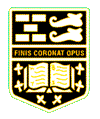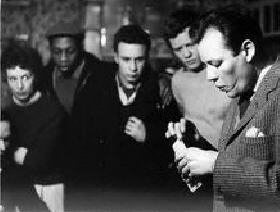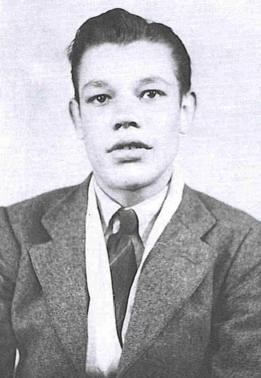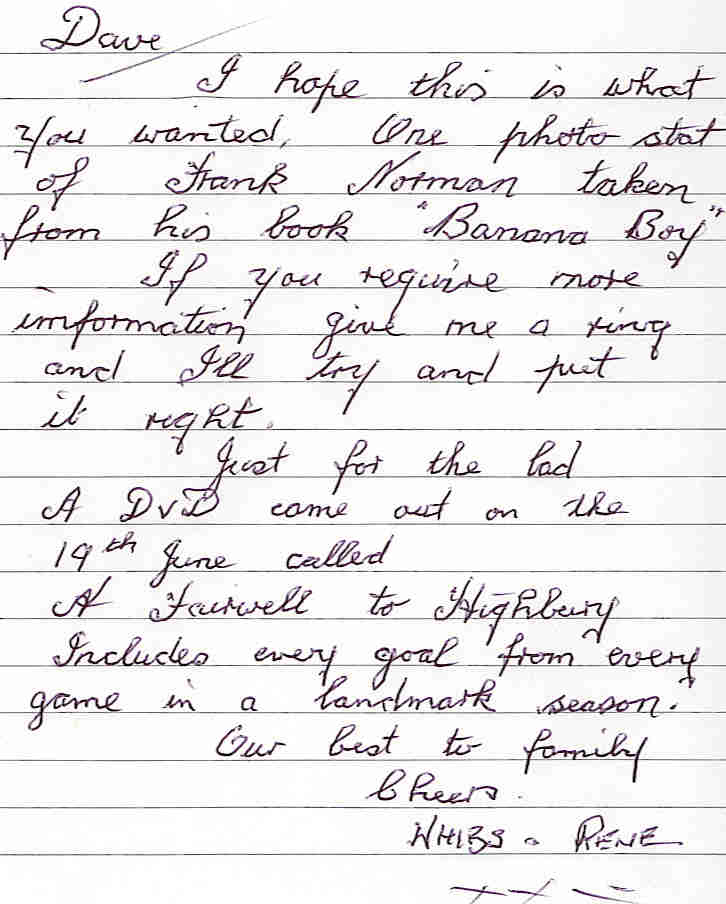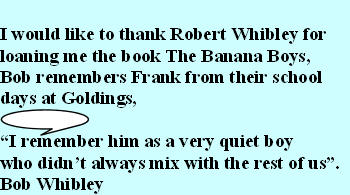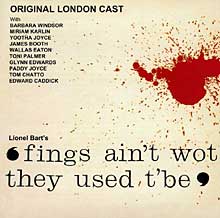|
Frank Norman (9 June 1930-23 December 1980) was a British writer
of novels, plays and autobiography. His reputation rests on his first
memoir Bang to Rights (1958) and his musical play Fings Ain’t Wot
They Used T’Be (1960), but much of the remainder of his work
remains fresh and readable. Norman's early success was based in part
on the frankness of his memoirs and in part on the style of his writing,
which contained both renditions of Cockney speakers and his own
poor spelling. Jeffrey Bernard in an obituary of Norman wrote that he
was "a 'natural' writer of considerable wit, powers of sardonic
observation and with a razor sharp ear for dialogue particularly as
spoken in the underworld."
Norman was born in Bristol in 1930 and abandoned by his natural parents. After an unsuccessful adoption he
was committed to a succession of children's homes in and around London -- the story of which is recounted in
his childhood autobiography Banana Boy. After the homes came a succession of petty crimes for which he
was imprisoned, finally leading to a three
year stretch at Camp Hill Prison on the Isle of Wight.
Released from prison in 1957, he started writing what was to become his best known book. Norman's own
accounts of how he came to write are at variance with one another, but within a year of his release, he had
published in Encounter magazine a 10,000 word extract from his prison memoir, Bang to Rights. Championed
at first by the editor of Encounter Stephen Spender, and subsequently by Raymond Chandler who wrote the
foreword to Bang to Rights, Norman's literary success was assured.
After the success of Bang to Rights Norman wrote a draft of what was to become the musical Fings Ain't Wot
They Used T'Be.
This draft found its way Joan Littlewood who produced it for the Theatre Workshop at the Theatre Royal
Stratford, with Lionel Bart writing the music for the songs. The play transferred to the West End, and Norman
won the Evening Standard Drama Award for best musical in 1960.
Around the same period Norman was writing Stand on Me, an autobiographical memoir of his life in Soho in
the 1950s before imprisonment. His next book The Guntz was a follow-up to Bang to Rights, relating stories
from his life as a successful writer.
Soho Night and Day (1966) was a collaboration with Jeffrey Bernard whose photographs enlivened Norman's
text. Two novels followed in quick succession: The Monkey Pulled His Hair in 1967 and Barney Snip - Artist
(1968).
A further novel, Dodgem Greaser, published in 1971, contained the fictionalised memoirs of a fairground boy,
certainly based on Norman's own boyhood fairground experiences.
Norman's London reprinted a selection of Norman's early journalism, while Lock'em up and Count'em
provides an appraisal of and a plan of reform for the British prison system. The Penguin collection The Lives
of Frank Norman (1972) contains extracts from four of his previously published autobiographical books. A
further memoir Why Fings Went West (1975) deals specifically with theatre life in the late 1950s and early
1960s.
His last published work of non-fiction was The Fake's Progress written in collaboration with its subject Tom
Keating, the art forger and his wife Geraldine Norman, whom he married in 1971.
Norman's novels of the 1970s lacked some of the power of his earlier work. One of our Own is a rambling
novel of East End life; Much Ado About Nuffink (1974), is a semi-autobiographical novel of a working-class
Play right whose play "Who Do They Fink They're 'Aving A Go At, Then" becomes a critical success. Down
and Out in High Society (1975) is a novel of Soho.
Three late novels, Too Many Crooks Spoil the Caper (1979), The Dead Butler Caper (1980) and The
Baskerville Caper (1981) find Norman back in strong form in a series featuring Ed Nelson, an under-employed
Soho private detective.
Fings ain't wot they used t'be is a play with music, rather than a normal musical.
The play, by Frank Norman, himself a Cockney, has music and lyrics by Lionel
Bart, a Jew who also grew up on London 's East End. It was initially produced
by Joan Littlewood.
It subsquently played at the Garrick Theatre in London's West End, starting on
11 February 1960. It ran for about two years.
Frank Norman died in December 1980 of Hodgkinson’s Disease
|
